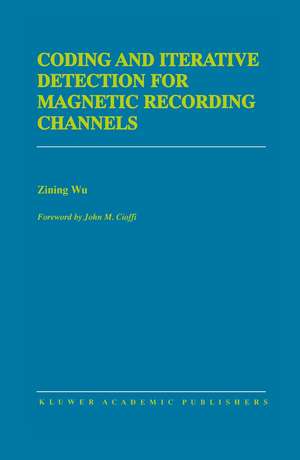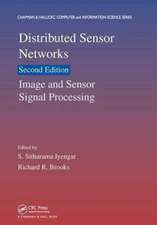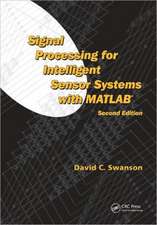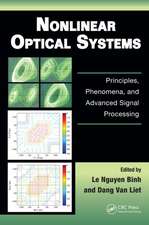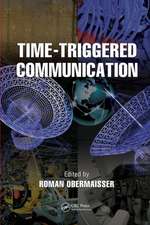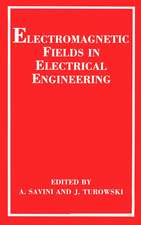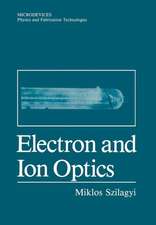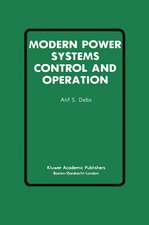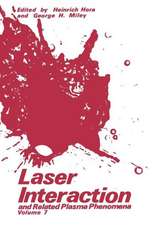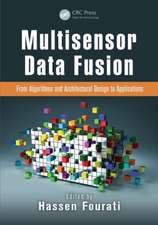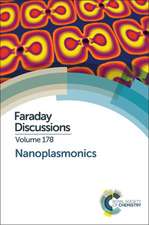Coding and Iterative Detection for Magnetic Recording Channels: The Springer International Series in Engineering and Computer Science, cartea 531
Autor Zining Wuen Limba Engleză Paperback – 23 oct 2012
| Toate formatele și edițiile | Preț | Express |
|---|---|---|
| Paperback (1) | 634.49 lei 43-57 zile | |
| Springer Us – 23 oct 2012 | 634.49 lei 43-57 zile | |
| Hardback (1) | 640.55 lei 43-57 zile | |
| Springer Us – 31 ian 2000 | 640.55 lei 43-57 zile |
Din seria The Springer International Series in Engineering and Computer Science
- 24%
 Preț: 1041.98 lei
Preț: 1041.98 lei - 20%
 Preț: 643.50 lei
Preț: 643.50 lei - 18%
 Preț: 1225.62 lei
Preț: 1225.62 lei - 18%
 Preț: 965.02 lei
Preț: 965.02 lei - 20%
 Preț: 646.12 lei
Preț: 646.12 lei - 18%
 Preț: 948.79 lei
Preț: 948.79 lei - 20%
 Preț: 646.62 lei
Preț: 646.62 lei - 15%
 Preț: 637.46 lei
Preț: 637.46 lei - 20%
 Preț: 643.83 lei
Preț: 643.83 lei - 18%
 Preț: 949.23 lei
Preț: 949.23 lei - 20%
 Preț: 644.48 lei
Preț: 644.48 lei - 20%
 Preț: 994.92 lei
Preț: 994.92 lei - 20%
 Preț: 645.97 lei
Preț: 645.97 lei - 18%
 Preț: 946.87 lei
Preț: 946.87 lei - 20%
 Preț: 995.57 lei
Preț: 995.57 lei - 18%
 Preț: 956.99 lei
Preț: 956.99 lei - 20%
 Preț: 644.98 lei
Preț: 644.98 lei - 15%
 Preț: 649.54 lei
Preț: 649.54 lei - 18%
 Preț: 950.21 lei
Preț: 950.21 lei - 18%
 Preț: 1221.38 lei
Preț: 1221.38 lei - 18%
 Preț: 957.62 lei
Preț: 957.62 lei - 15%
 Preț: 643.99 lei
Preț: 643.99 lei - 18%
 Preț: 948.47 lei
Preț: 948.47 lei - 18%
 Preț: 947.35 lei
Preț: 947.35 lei - 20%
 Preț: 1284.65 lei
Preț: 1284.65 lei - 20%
 Preț: 1628.31 lei
Preț: 1628.31 lei - 20%
 Preț: 1285.78 lei
Preț: 1285.78 lei
Preț: 634.49 lei
Preț vechi: 746.47 lei
-15% Nou
Puncte Express: 952
Preț estimativ în valută:
121.45€ • 131.96$ • 102.08£
121.45€ • 131.96$ • 102.08£
Carte tipărită la comandă
Livrare economică 21 aprilie-05 mai
Preluare comenzi: 021 569.72.76
Specificații
ISBN-13: 9781461370611
ISBN-10: 1461370612
Pagini: 176
Ilustrații: XX, 152 p.
Dimensiuni: 155 x 235 x 9 mm
Greutate: 0.25 kg
Ediția:Softcover reprint of the original 1st ed. 2000
Editura: Springer Us
Colecția Springer
Seria The Springer International Series in Engineering and Computer Science
Locul publicării:New York, NY, United States
ISBN-10: 1461370612
Pagini: 176
Ilustrații: XX, 152 p.
Dimensiuni: 155 x 235 x 9 mm
Greutate: 0.25 kg
Ediția:Softcover reprint of the original 1st ed. 2000
Editura: Springer Us
Colecția Springer
Seria The Springer International Series in Engineering and Computer Science
Locul publicării:New York, NY, United States
Public țintă
ResearchCuprins
1. Introduction to Magnetic Recording Channels.- 1. Magnetic Recoding Systems.- 2. Magnetic Recording Channel Model.- 3. Challenges in Read/Write Electronics Design.- 4. Read Channel Detectors.- 5. Outline of Book.- 2. Turbo Codes and Turbo Equalization.- 1. Introduction.- 2. Turbo Encoder and Coding Gain.- 3. Soft Iterative Decoding with BCJR Algorithm.- 4. Turbo Equalization for Magnetic Recording Channels.- 5. Summary.- APPENDIX 2.A Recursive Algorithms for ?’s and ?’s.- APPENDIX 2.B Approximation for the Log-Sum operation.- 3. Low-Density Parity-Check Codes.- 1. Introduction.- 2. Low-Density Parity-Check Codes.- 3. Iterative Detection and Belief Propagation.- 4. LDPC Codes for Magnetic Recording Channels.- 5. Summary and Discussion.- 4. Turbo Decision Aided Equalization.- 1. Decision Aided Equalization for Channel APP Detection.- 2. Implementation and Analysis of Turbo-DAE.- 3. Simulation Results.- 4. Turbo-DAE with Local BCJR.- 5. Summary and Conclusion.- APPENDIX 4.A APP Detection for Binary Markov Source with Finite Input Memory.- 1. Markov Source with Finite Input Memory.- 2. Modified BCJR Algorithm for Binary Markov Source with Finite Input Memory.- 5. Interleaved Parity Check Codes and Reduced Complexity Detection.- 1. Introduction.- 2. Error-events for the E2PR4 Channel.- 3. Interleaved Parity Check Codes.- 4. Reduced Complexity Detection for Interleaved Parity Check Codes.- 5. Performance of Interleaved Parity Check Codes.- 6. Summary and Conclusion.- 6. Interpolated Timing Recovery.- 1. Introduction.- 2. Conventional VCO-based Timing Recovery Loop.- 3. MMSE Interpolation Filter.- 4. FIR-ITR Loop Structure.- 5. Practical Issues.- 6. Simulation Results.- 7. Summary and Conclusion.- 7. Summary and Discussion.- 1. Speeding Turbo Decoding.- 2. TimingRecovery Schemes for Low SNR Channels.- 3. Turbo Decision Aided Equalization for Other Types of Channels.- References.
